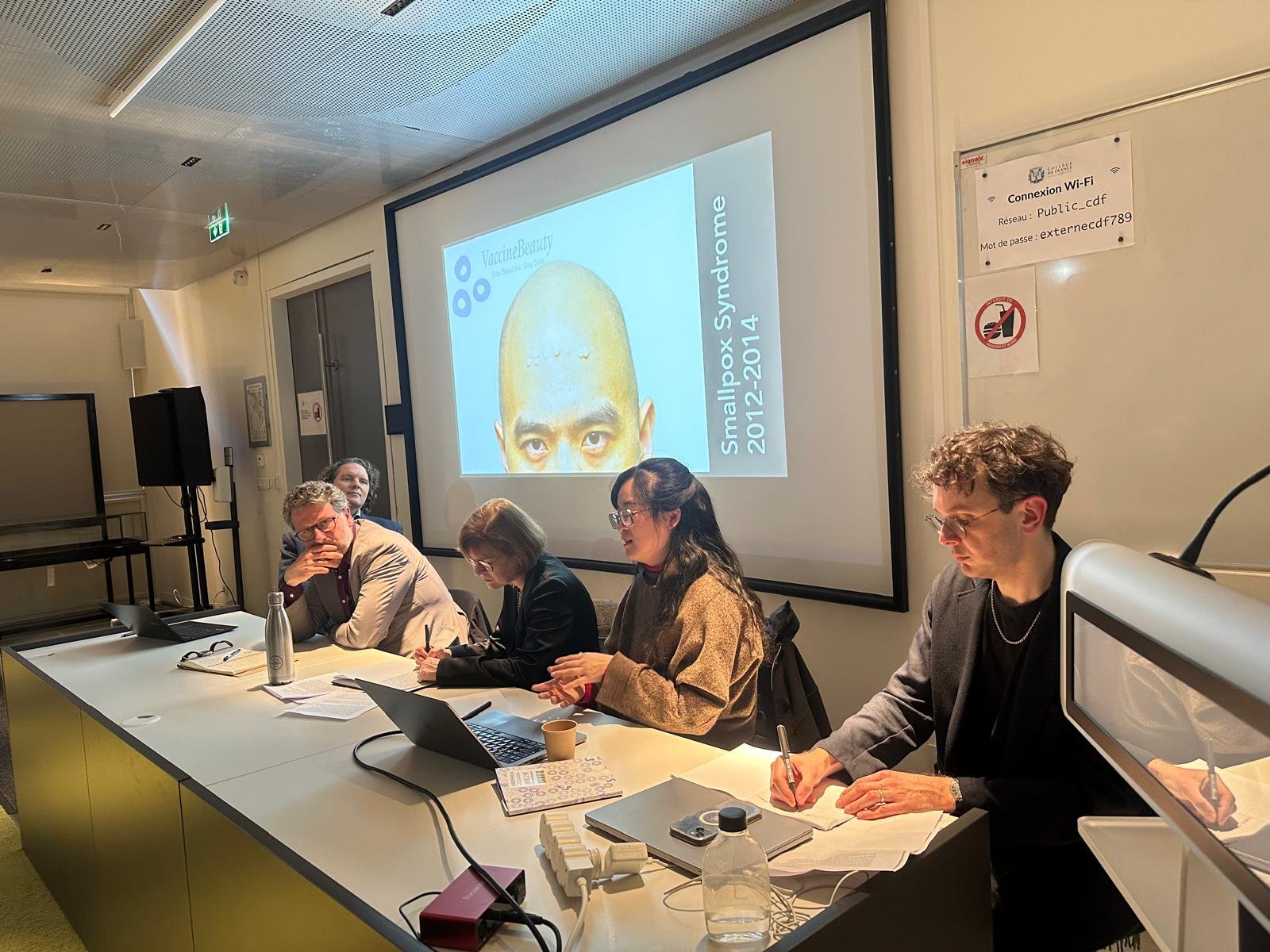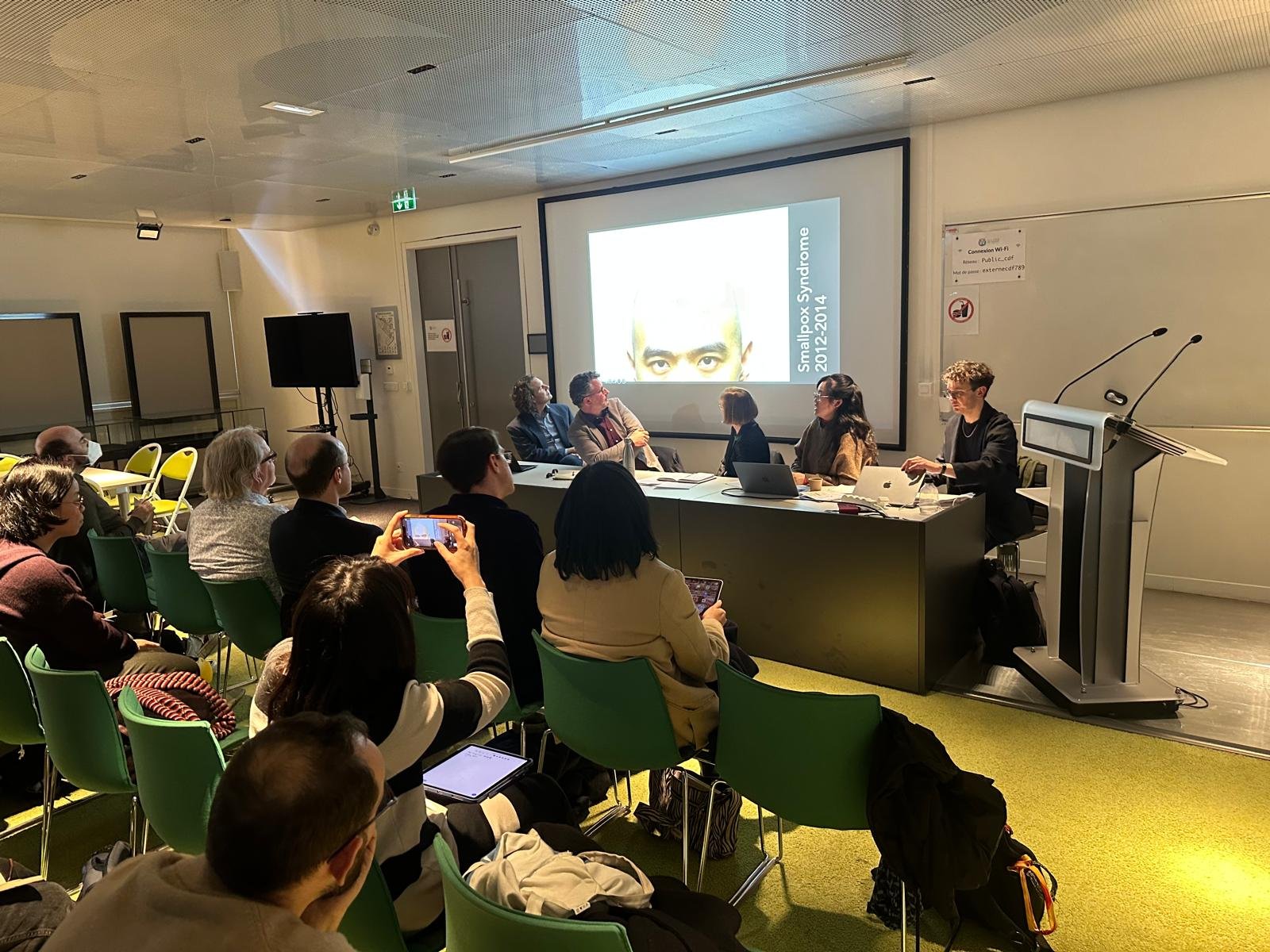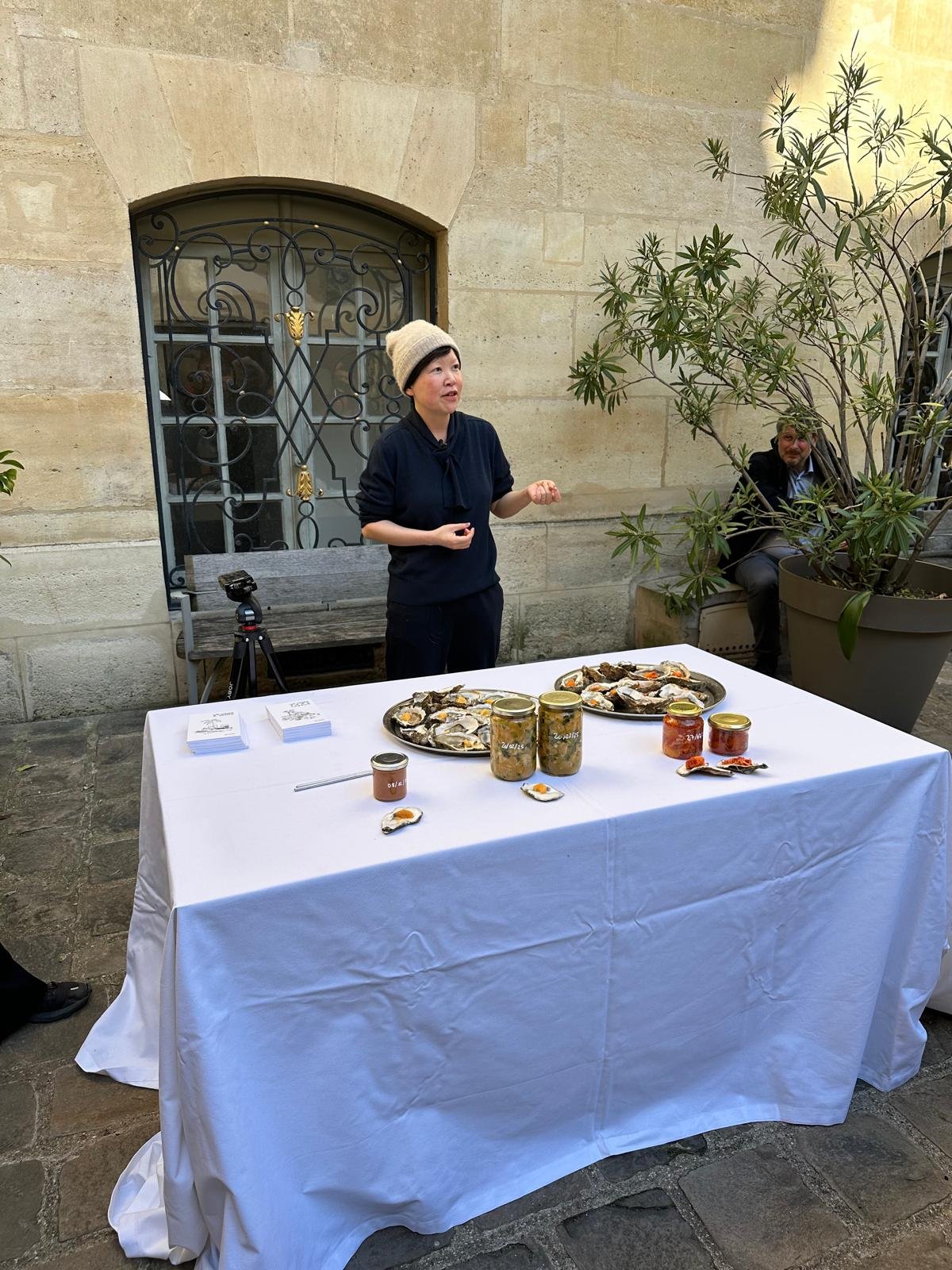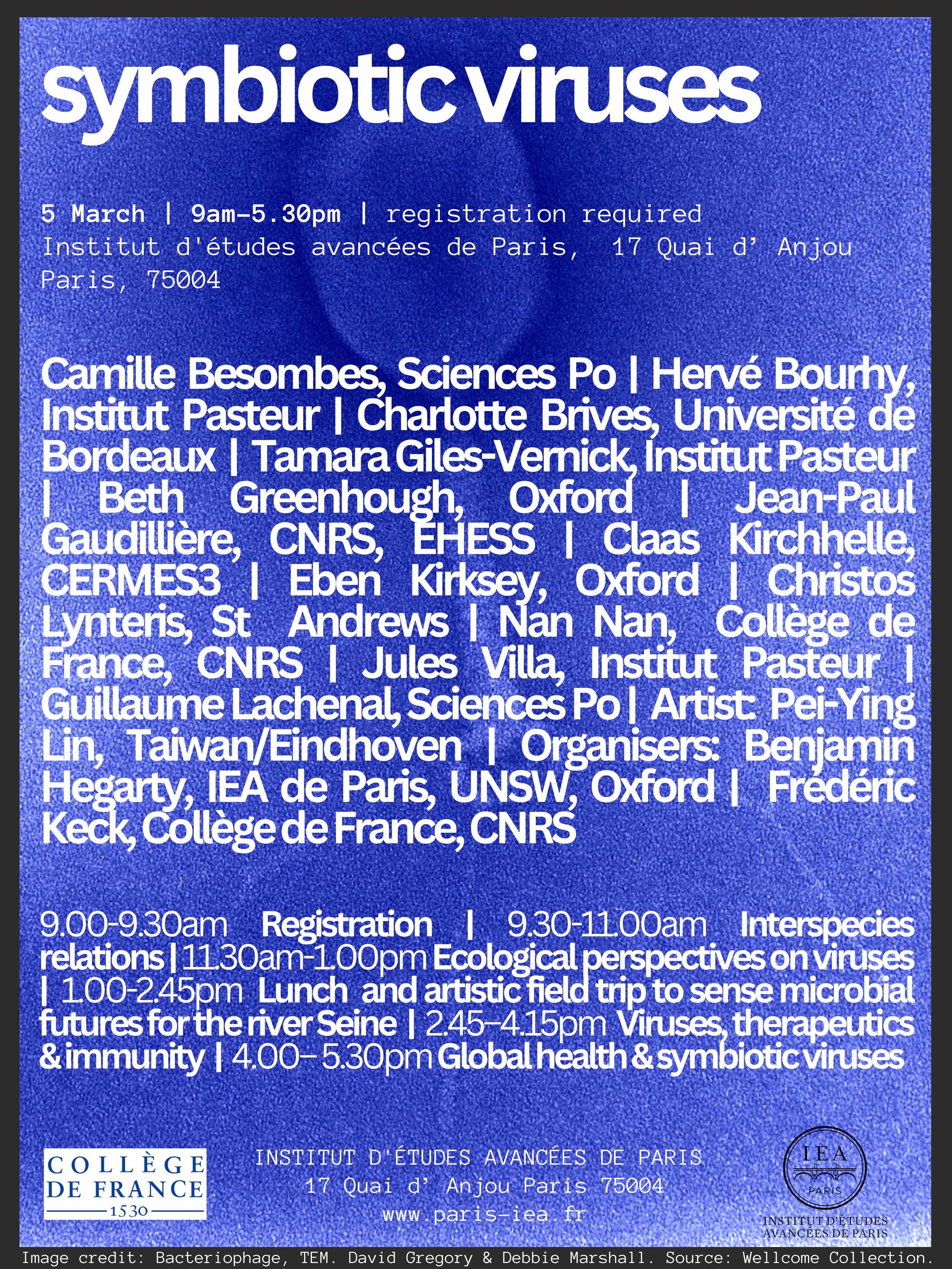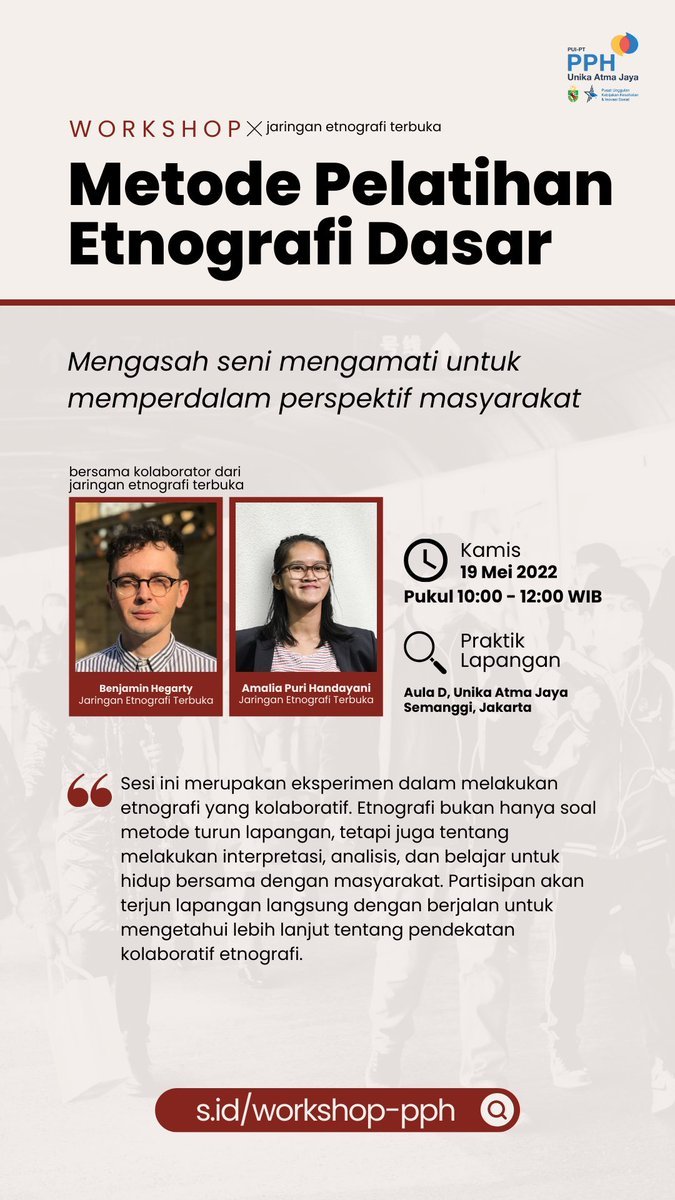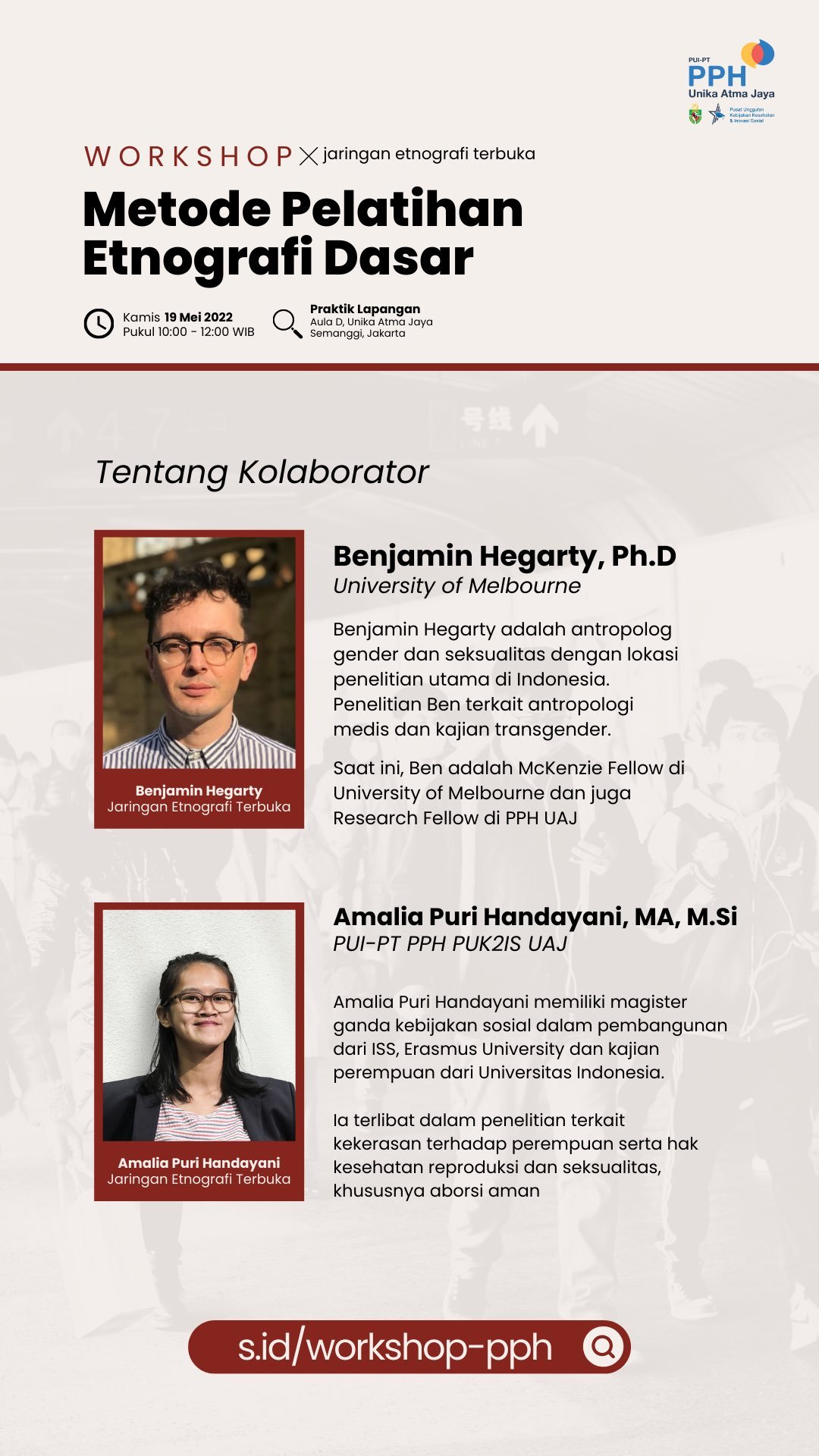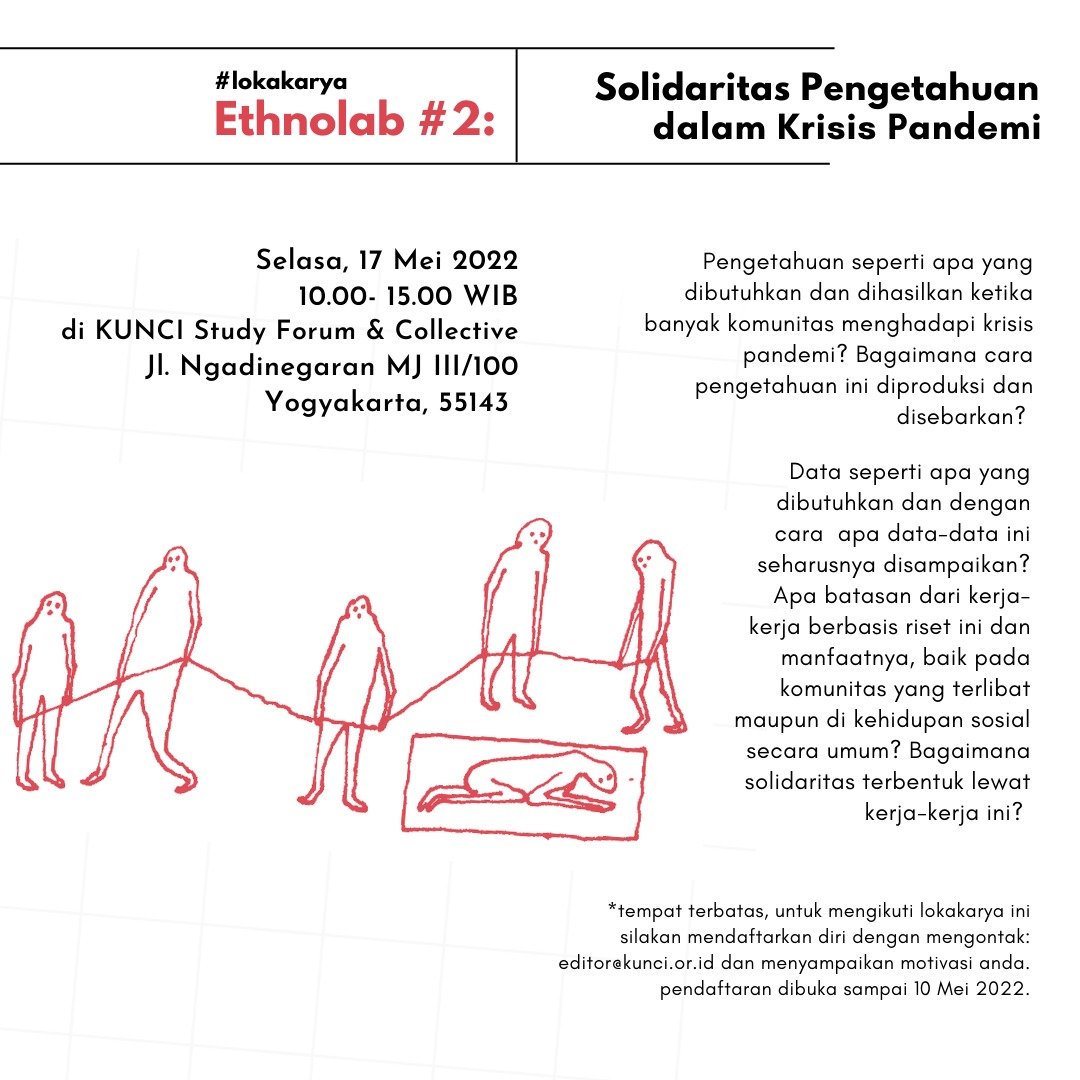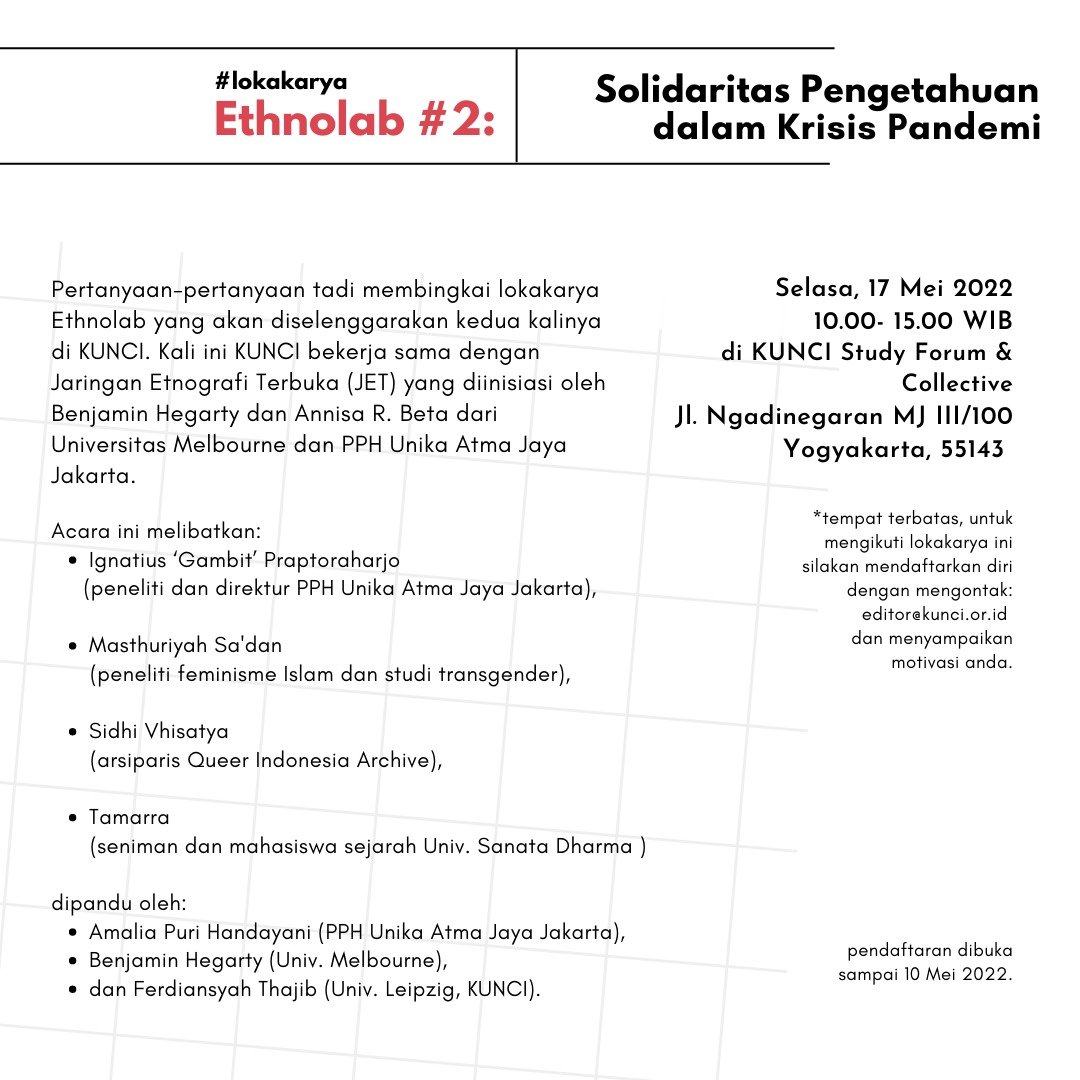This first public webinar of Jaringan Ethnografi Terbuka (JET) - the Network for Open Ethnography - seeks to define ‘etnografi terbuka.’ The panellists will discuss the ethnographic encounters they have led or experienced and reimagine the possibility of ethnographic processes and and experience that are open, experimental, and collaborative. This webinar will invite participants to interactively rethink the ethnographic process and define together ‘open ethnography‘ with the panellists.
Seminar publik pertama dari Jaringan Etnografi Terbuka (JET) ini akan mendiskusikan apa yang kami maksud dengan ‘etnografi terbuka’.
Meskipun sudah ada kerangka pikir tentang etnografi terbuka seperti Platform for Experimental, Collaborative Ethnography (PECE), 'etnografi terbuka' yang kami rancang fokus ke dalam proses dan praktik etnografi yang berkomitmen pada pendekatan yang kolaboratif, mengedepankan akses, rasa kepedulian, komunitas, dan cara berpikir dekolonial.
Para panelis akan mendiskusikan keterlibatan mereka sebagai peneliti atau partisipan dalam proyek etnografi dan membayangkan kembali kemungkinan proses dan pengalaman etnografi yang lebih terbuka, eksperimental, dan kolaboratif.
Seminar ini akan mengajak peserta secara interaktif memikirkan kembali proses etnografi dan mendefinisikan bersama ‘etnografi terbuka’ bersama para panelis.
Ini adalah acara pertama dalam rangkaian Kosakata Etnografi Terbuka yang JET sedang kembangkan.
Panellists:
Dr Benjamin Hegarty, The University of Melbourne
Dr Annisa Beta, The University of Melbourne
Ben Laksana, Arkademy Project and Victoria University of Wellington
Zara Aisyah Fauziah, Sanggar Swara
Thursday 2 June 2022, 2pm-3.30pm (Indonesia, Western)
About the network
Jaringan Etnografi Terbuka (JET) merupakan inisiatif Dr Benjamin Hegarty dan Dr Annisa R. Beta dari University of Melbourne (Australia) bersama PUI-PT PPH Unika Atma Jaya (Indonesia) di awal tahun 2022. JET didukung oleh hibah Indonesia Engagement dari University of Melbourne.
Jaringan Etnografi Terbuka bertujuan menjadi wadah bagi peneliti (termasuk peneliti di universitas, aktivis dan komunitas) dan masyarakat sipil di Indonesia untuk berbagi pengetahuan dan pengalaman terkait metode etnografi serta mengembangkan metode penelitian dengan pendekatan etnografi yang kolaboratif dan kreatif.
Etnografi sering dianggap sebagai metode yang hanya cocok diterapkan dalam penelitian komunitas kecil atau terbatas. Metode-metode etnografi terkini sebenarnya dapat menjadi alat untuk mengkaji berbagai isu terkait media, politik, kesehatan, identitas, dan konflik secara responsif dan mendalam. JET berencana mengembangkan website, menerbitkan sumber bacaan, video, dan juga podcast untuk menjadikan etnografi sebagai metodologi penelitian sosial-budaya menjadi lebih mudah dipahami dan dapat dilakukan oleh lebih banyak peneliti di Indonesia.
Jaringan Etnografi Terbuka (JET) was initiated by Dr Benjamin Hegarty and Dr Annisa R. Beta from the University of Melbourne (Australia) with PUI-PT PPH Unika Atma Jaya (Indonesia) in early 2022. JET is supported by an Indonesia Engagement grant from the University of Melbourne.
Jaringan Etnografi Terbuka aims to be a forum for researchers (including researchers at universities, activists and communities) and civil society in Indonesia to share knowledge and experiences related to ethnographic methods and to develop ethnographic research methods that are committed to collaboration and creative approaches.
Ethnography is often considered a method that is only suitable in small or limited community-based research. Current ethnographic methods can actually be a tool to examine various issues related to media, politics, health, identity, and conflict in a responsive and in-depth manner. JET plans to develop a website, publish reading resources, videos, and podcasts to make ethnography easier to be understood and practiced by more researchers in Indonesia.
Register here: https://www.eventbrite.com/e/conceptualising-open-ethnography-from-indonesia-tickets-336919052957
